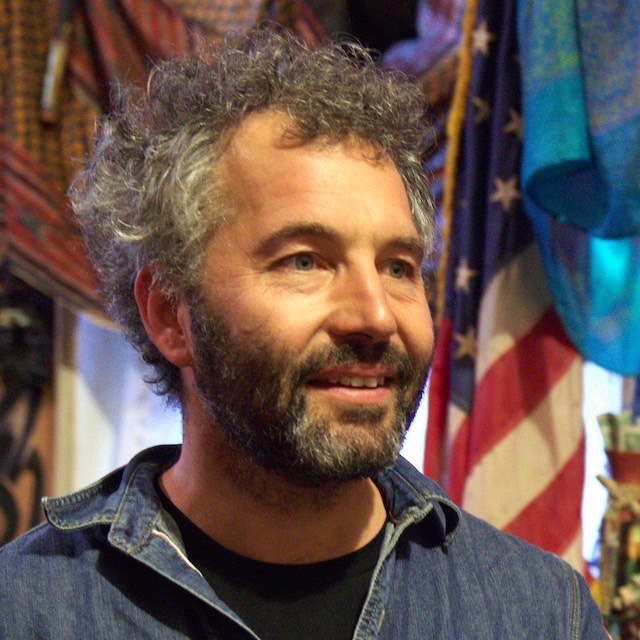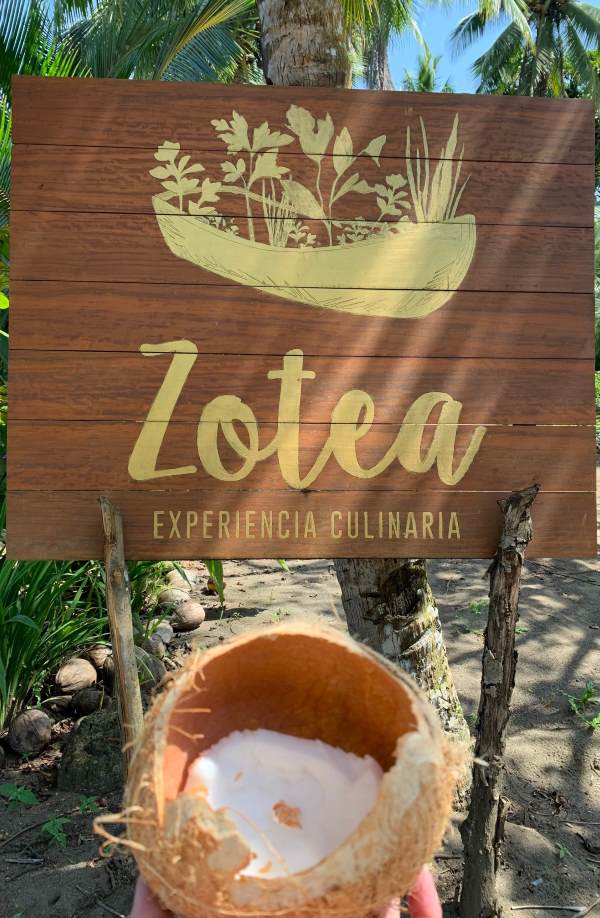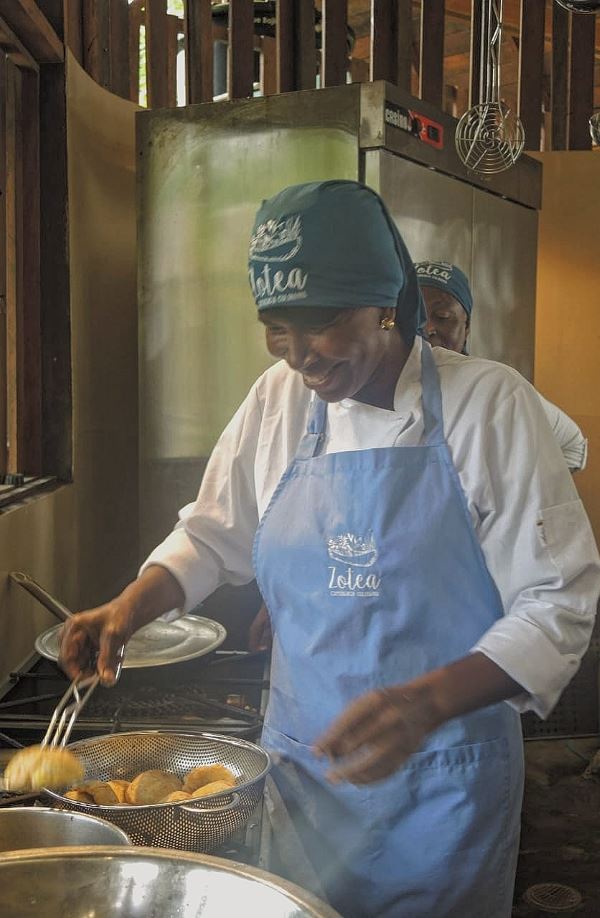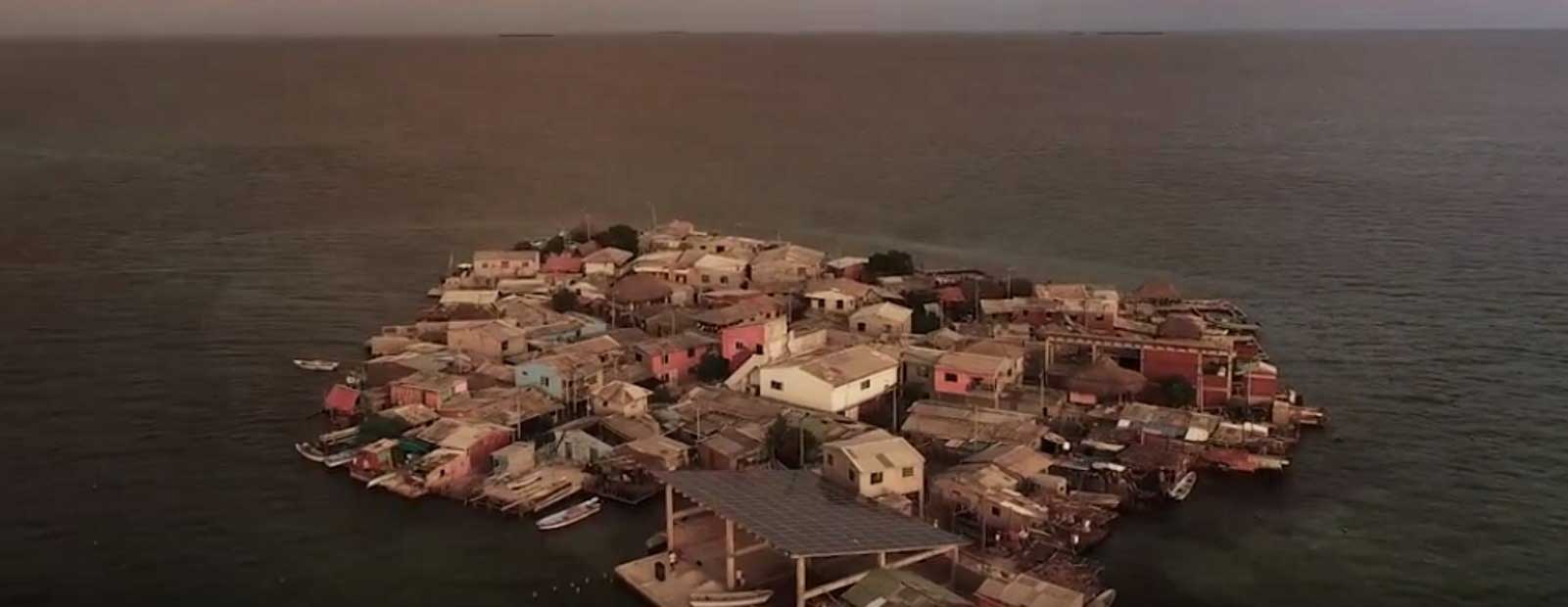
By Brian Rapsey
Travel Filmmaker20 Sep 2019 - 10 Minute Read
Watch the video, then click here or scroll down for an update. Read how the community and their ecotourism project has come through civil war and the COVID-19 pandemic with the help of a world-renowned Colombian chef.
In 2015 I traveled to the remote Pacific coast of Colombia to make a film with and about the community of Coqui. Hopes and anxieties were high, as Colombia was on the very cusp of ending its 50+ year civil war. For decades, the FARC rebels had trafficked the bulk of the world’s cocaine trade up this coastline to pay for its war efforts. The area is so off-grid that the only way in is boat or light plane: there are no roads, and almost no government services.
Most goods are bartered or traded, as there is only a marginal cash economy. Due to its remoteness, the region is rife for exploitation – there are reputedly many illegal gold mines or coca leaf plantations – and young people are tempted to leave their villages to make hard cash.
But here on the very fringes of the world’s consumerist economy, a very special sense of community can be had – where villagers band together to harvest crops, clean the village, dance in the streets, forage, farm, and fish. It's the wettest place on earth and one of the most biodiverse. I went there to help put the community on the ecotourism map, and hopefully make it more resilient.
The village was founded more than 150 years ago by descendants of African slaves who managed to escape from the Spanish-run gold mines. One of those descendants is Fausto, a community leader and main character in our film. It was with him that we planned how to represent the community – in a way that would be genuine and beneficial, and importantly, not make them vulnerable to outside forces.
In Spanish. To view video captions, hover over the video and click on CC.
We chose four characters to follow that would create a multifaceted portrait: Ovideo, the artisanal fisherman and jungle farmer, keenly caring for his two young daughters; Cata, an environmental engineer working with villagers to develop vanilla production that doesn’t damage the forest; Maria, a restauranteur who takes everyone on a foraging expedition into the mangroves; and finally, Fausto himself, who ties the story together.
It was hot in the jungle – my camera and I both threatened to overheat. I didn’t speak Spanish, so I relied on my guide and translator Gregg Bleakney from WhereNext Productions. But my biggest challenge was finding the delicate balance in the story that evoked the warm embrace of the community and artlessly made the audience feel they were participating in the experience itself.
Update:
In 2016, the nonprofit organization Fundacion Choco Emprende returned to this area to reinvigorate the ecotourism project. The project manager, Marina Mackinlay, shared with us how the project is faring in 2021.
Choco is one of the poorest and most neglected areas in Colombia. Yet, Chocoans are very friendly people who were dealt a bad hand but always want to make the best out of everything.
In 2016 Fundacion Choco Emprende and the community of Coqui started to imagine a dream. Together with the world renowned Colombian chef, Leonor Espinosa, Zotea was created: a restaurant, green house, and coconut oil factory, a source of employment and pride. (Zotea is the colloquial name the community gives to their boats once they’ve served their purpose at sea and become the family gardens.)
We wanted to create a sustainable source of income and employment that would enable the locals to stay in the community and not migrate to the big cities. We’ve worked to help them develop the skills necessary to be successful: learning about their strengths, acquiring new managing tools, exchanging knowledge about cooking from their cultural heritage and learning new cooking techniques to create exquisite dishes for the restaurant.
The restaurant started with a lunch service and is now catering to private groups, serving breakfast, lunch, and dinner. We’ve continuously grown the number of tourists and services, incorporating cooking classes, cocktails made from viche, and tours of the green house to show what we use in the dishes. The coconut oil factory produces coconut oil of the best quality and sells locally and to the best restaurants in Colombia.


The pandemic has been hard on our project. For months tourists stopped coming and our big buyers of coconut oil were forced to close their doors making it almost impossible to sell our product. People in Coqui have stayed focused and were able to maintain the restaurant. In the last few months, tourists started returning well as the humpback whales, which are one of the attractions of this region.
One of Zotea’s main objectives is to empower the community to become leaders of their own development goals. A board of directors was created in order to strengthen decision-making process. Community members are now making important decisions both at the directors’ level and on a daily basis. We are proud to say that the restaurant is now self-sufficient economically and the community is making plans to re-invest the earnings.
We have great hopes for the future of Zotea and their people. We are working to provide solar power to the coconut oil factory to allow more reliable production. We continue working on the training and involvement of younger people of the community, and developing new products like vanilla, crafts, and coconut-derived products to allow more people to be involved and profit from the project.
Follow Zotea on Instagram: @zoteacolombia
Discover similar stories in
connection

No Comments